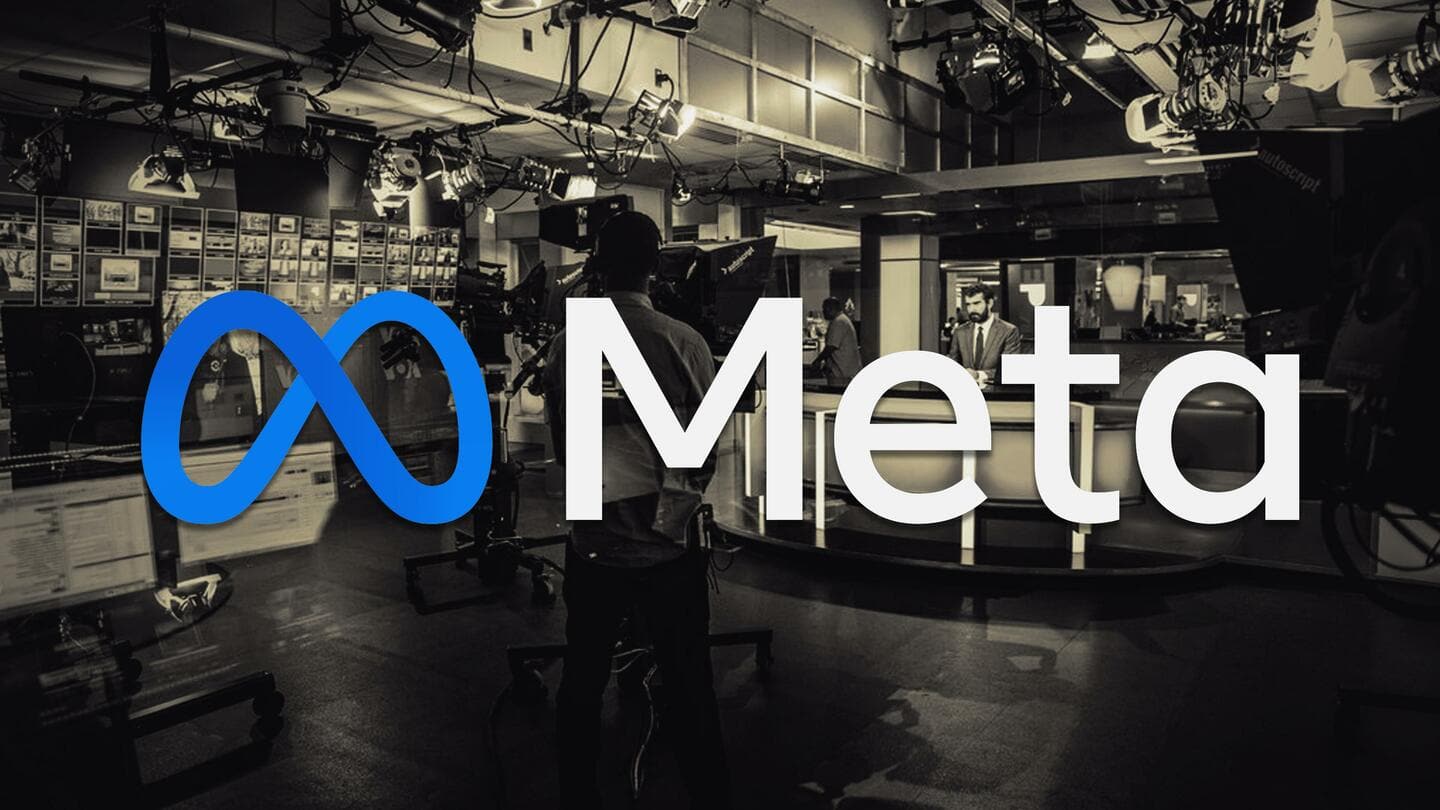
Why is Meta threatening to remove news content in US
What's the story
If there is one issue that gets Meta riled more than Apple's privacy updates, it is governments asking the company to compensate news organizations for news content.
The company has gone as far as threatening to ban news content from the platform. First in Australia, then Canada, and now the US.
Let's take a look at the company's history with similar legislation.
Journalism bill
Journalism bill will allow publishers to negotiate with Big Tech
The Journalism Competition and Prevention Act (JCPA) was introduced in Congress last year with support from both parties. The legislation gives publishers more powers to negotiate with platforms such as Meta and Google.
It is supposed to give publishers some leverage over Big Tech over the disbursement of their content. It is similar to legislation introduced in Australia and Canada.
Australia
Google threatened to leave Australia over the legislation
Last year, Australia passed the Treasury Laws Amendment (News Media and Digital Platforms Mandatory Bargaining Code) Act 2021, or the news media bargaining code. It was passed to govern the commercial relationship between Australian news businesses and digital platforms.
When the bill was introduced, it attracted a strong reaction from both Meta and Google, with Google threatening to leave the country.
Reaction
Facebook banned Australian publishers, users from sharing news content
Google, however, softened its stance and decide to negotiate with news outlets. Facebook, on the other hand, didn't follow suit. The company threatened to ban Australian users and publishers from sharing news on the platform.
Guess what, it came good on the promise as well. Facebook saw its action as last resort against unfair legislation that didn't take into consideration the reality.
Stance
How did Facebook justify banning news content in Australia?
Facebook's argument was that it is the news outlets that benefit from sharing their news content on the platform and not the other way around. The company said that news content makes up less than 4% of what people see in the News Feed.
It said that Australian news publishers gained an estimated AU$ 407 million in referrals from their partnership with Facebook.
Difference
Publishers post news willingly: Facebook
Facebook also drew differences between itself and Google to prove that it is being unfairly treated by the government. It said that publishers willingly post news on Facebook because it gave them more subscriptions, more audiences, and better advertising revenue.
"The proposed law fundamentally misunderstands the relationship between our platform and publishers who use it to share news content," the company said then.
Amendment
Facebook resumed services after the Australian government made amendments
Facebook resumed its services only after the Australian government promised to make some amendments to the proposed legislation. The amendments included giving tech companies and publishers two months to reach an agreement, which allowed Facebook more time.
Another amendment provided tech companies a chance to evade forced arbitration with publishers, an aspect of the legislation that the tech companies had an issue with.
Canada
Meta held a similar stance in Canada as well
After Australia, Meta was dealt the Canadian challenge. The contentious legislation this time was the 'Online News Act.' Based on the Australian model, Canadian legislation proposes a revenue-sharing model between digital media platforms and publishers.
Similar to what it said in Australia, Meta argued that it is the news outlets that benefit from their commercial relationship and not the other way around.
Threat
Meta threatened to ban news content in Canada
Like it did in Australia, Meta threatened to ban news content in Canada as well if the proposed legislation goes through without safeguards for tech companies. The company said that news stories make up only less than 3% of the content on News Feed.
The legislation is yet to be passed as it is still before the parliamentary committee.
Reason
Meta fears that other countries will follow suit
If news content makes up such a small amount of News Feed in both Australia and Canada, why is Meta going to great lengths to stop such legislation?
Well, for starters, the rest of the world is watching countries that are enacting legislation to put a leash on tech companies. The US example has brought Meta's doubts to life.
Response
What did Meta say about the proposed US legislation?
Meta has the same response to the proposed Journalism Competition and Preservation Act (JCPA) in the US. The company's head of policy communications, Andy Stone, said that Meta would consider"removing news" from its platform than "submit to government-mandated negotiations."
However, unlike Australia and Canada, this threat is different. The US is one of Meta's biggest markets. Will it take such a risk?
Tactics
Meta is no stranger to scorched earth tactics
Meta is no stranger to scorched earth tactics. In Australia, when it banned news content, the company also took down posts from government departments.
It later apologized for the action and attributed it to a technical mistake. However, some whistleblowers later told The Wall Street Journal that Meta did it on purpose to gain upper hand in negotiations with the government.